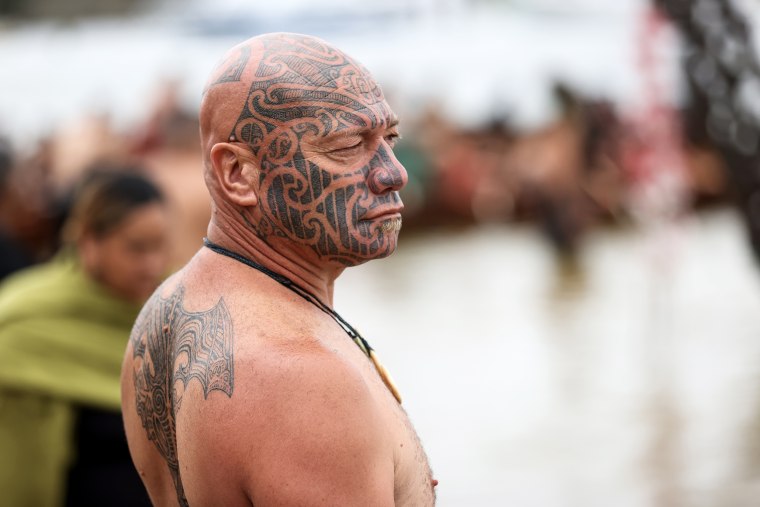MERCER, New Zealand — New Zealand’s longest river courses through spongy green lowlands on the country’s North Island, a mighty behemoth that local Māori see as a living ancestor.
For more than 10 years, government ministers and tribes of New Zealand’s Indigenous people have appointed equal numbers of board members to work toward the restoration of the health and well-being of the Waikato River. The arrangement — known locally as co-governance — is the result of a settlement delivered by a decadeslong effort to resolve state breaches of a historic treaty and has been described as a success by representatives of both groups.
Since 2017 however, government efforts to go further and share decision-making with Māori in other areas of public life have fueled a febrile national debate about how to guarantee Indigenous rights without undermining democracy, echoing tensions in other postcolonial societies. Now in an election year, the issue is a political fault line ahead of what is expected to be a close race in October.
The discussion, which many say is picking away at social cohesion, is rooted in differing interpretations of the country’s founding document — the Treaty of Waitangi — and competing visions for the best way to redress colonial wrongs and foster a just relationship between the British Crown and its Indigenous treaty partners.
The agreement between the Crown and some 540 Māori chiefs paved the way for British sovereignty and colonial governance in New Zealand. However, the English and Māori versions of the text differed, and many argue that Māori chiefs would not have signed had their version said they were ceding sovereignty to Britain.
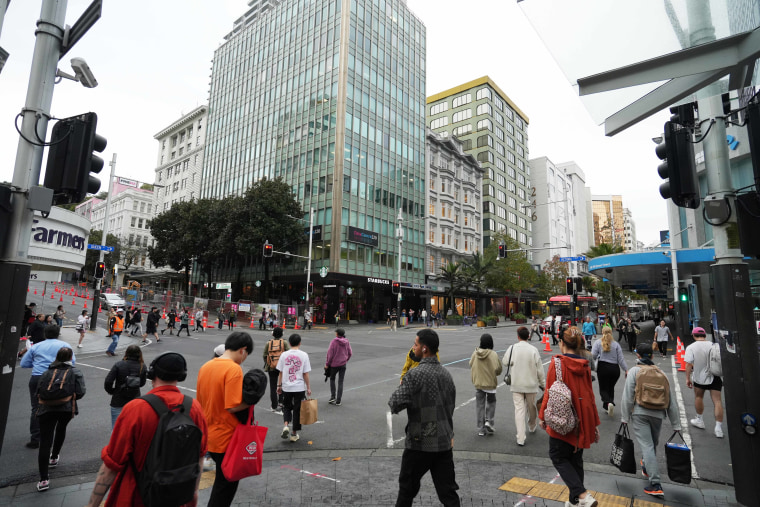
The Māori version said their leaders gave Queen Victoria what has been translated as “complete government” over their territories, but that they were guaranteed the “unqualified exercise of their chieftainship” over their lands, villages and all their treasures. The English text by contrast says Māori leaders gave the queen “all the rights and powers of sovereignty” over their territories, and guaranteed Māori “exclusive and undisturbed possession” of their lands and other properties.
A New Zealand government website examining the differences between the texts says Māori believe that they kept their authority to manage their own affairs but ceded a right of governance to the queen in return for the promise of protection. “There can be little doubt that the chiefs who signed the Treaty expected to enter into some kind of partnership and power sharing in the new system,” it says.
More than 180 years later, New Zealand is self-governing and independent from the United Kingdom, although King Charles III is still its head of state and bills still need royal assent to become law. While government efforts to increase shared decision-making with Māori have been welcomed by many as a recognition of Māori rights as signatories to the 1840 treaty, they have also been slammed by others as “dismantling democracy” in a country that was the first in the world to give women the right to vote.
“The Treaty of Waitangi represents true partnership,” Tukoroirangi Morgan — a leader of the Waikato-Tainui tribe and a chief architect of the Waikato River settlement agreement with the Crown — said earlier this year from a cafe near the muddy brown river. “Whether it’s health, or water or waterways, or any other thing in this country, we’re the perfect partner.”
But for David Seymour, the leader of the small libertarian ACT party, broadening power sharing in a country where Māori represent less than 20% of the national population, calls into question the principle of one person, one vote democracy and gives preferential treatment on the basis of race. The government’s interpretation of the country’s treaty risks “abandoning liberal democracy at the altar of the treaty,” he said during an interview in April at his party’s head office in central Auckland.
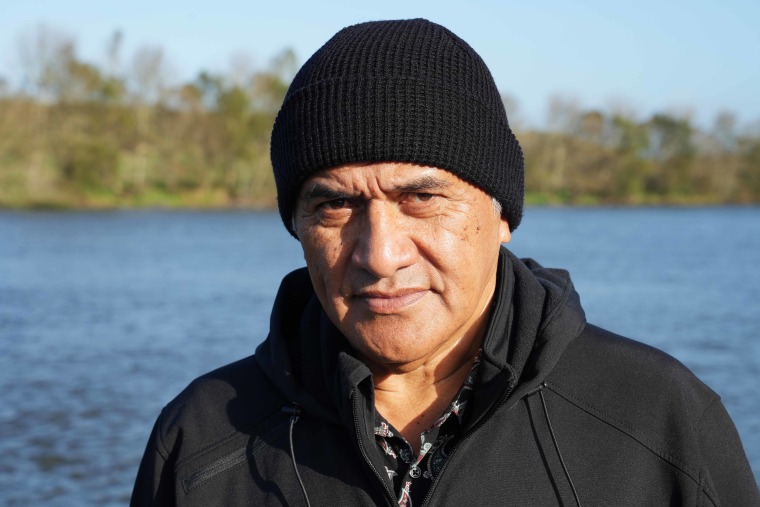
Since coming to power in 2017, coalition governments led by the center-left Labour Party have made it easier to establish Māori wards on local councils and introduced reforms they say will allow Māori greater authority over their health and greater influence throughout the entire health system. Under Prime Minister Chris Hipkins, the Labour-Green coalition government has said water infrastructure reforms will ensure there are an equal number of Māori and council seats on regional advisory groups.
These reforms have met with ardent opposition from some quarters, with many saying the end goal of the policies remains unclear. This was fueled by the publication of a report commissioned by the government that set out a vision to share more power with Māori over the coming decades. Opposition parties accused the government of keeping it under wraps, while Jacinda Ardern, who was prime minister at the time, was quoted as saying it had not been published because it was not government policy.
The latest polling suggests that Labour’s main opposition, the center-right National Party, and ACT could together capture a slim majority of seats in October’s election, well ahead of the number a potential Labour and Green coalition are currently polling. Government policies that share more decision-making power with Māori seemingly hang in the balance. National has told local media that while it supports the co-management between government and Māori for natural resources in the context of treaty settlements, it does not support co-governance of public services or separate bureaucratic systems for Māori and non-Māori. The ACT party has called for a referendum on the matter.
Debates about the status of Indigenous communities in modern society are not limited to New Zealand. There are parallels in other countries where European settlers came to dominate and Indigenous communities suffered as a result.
In Canada, First Nation communities announced earlier this year that they were challenging unilateral Crown control over around two-thirds of Ontario province, arguing that they never ceded decision-making power over the lands and resources. And in Australia, a proposal by the government to recognize the country’s Indigenous people in the constitution has inflamed a culture war and set off divisive debates — including among Indigenous people themselves.
The debates playing out in former British colonies often center on interpretations of historic agreements made between the Crown and Indigenous communities and how they apply to the modern day. They are colored by the fact that Indigenous communities have been marginalized and have been victims of discrimination.
In New Zealand, what was agreed to in the 1840 Treaty of Waitangi between the Crown and Māori chiefs is still debated today. A museum at the treaty grounds situated on the idyllic shores of the Bay of Islands attempts to carefully unpick the disagreement for its visitors.
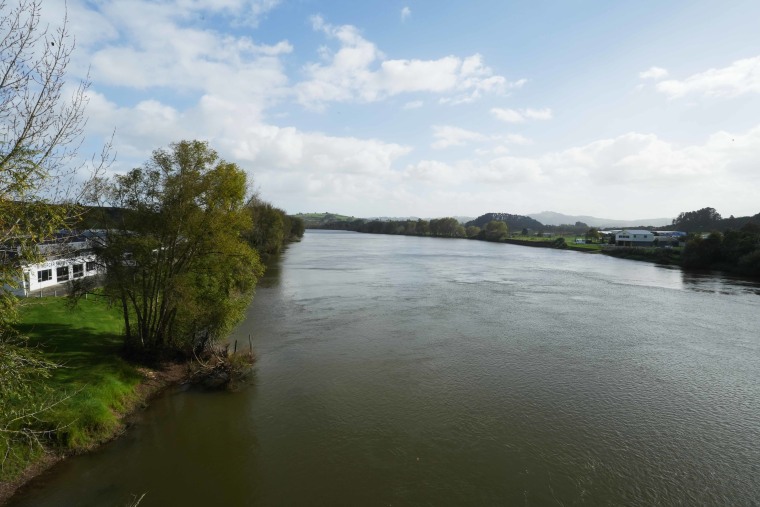
The use of different words such as sovereignty rather than government and possession rather than chieftainship are complicating relations almost 200 years later. While the meaning of the treaty is still debated, in the late 20th century it was acknowledged that the Crown breached the agreement by confiscating and acquiring Māori land, and for the past three decades the government has been negotiating and settling Māori claims.
The process has resulted in formal Crown apologies, multimillion-dollar compensation packages and power-sharing agreements over waterways and landforms, such as the one that governs the Waikato River. In 2010, the then-U.N. special rapporteur on the rights of Indigenous people, James Anaya, described the treaty settlement process as “one of the most important examples in the world of an effort to address historical and ongoing grievances of Indigenous peoples,” and it is broadly accepted by New Zealanders as a justified way to redress colonial wrongs.
However, Seymour, the ACT party leader who is Māori, is concerned the government is interpreting the treaty as a partnership between Māori and the Crown in which matters in the public sphere should be co-governed as “a matter of course” and where Māori are reserved seats at the table based on their race. It amounts, he said, to saying New Zealand is no longer a “one person, one vote democracy.”
“That’s where there’s a major resistance from people like me,” he said. “I don’t think there’s any basis for what they’re trying to do.”
He has called for the principles of the treaty to be properly debated and defined by Parliament, with resulting legislation put to a referendum.
The government declined to comment or answer NBC News’ questions on its position on the treaty or entrusing more power to Māori and local government minister Kieran McAnulty declined an interview request.
Asked earlier this year whether the government’s water infrastructure reforms were democratic, McAnulty told the broadcaster TVNZ that “there are provisions that we have in this country that wouldn’t stand up to a purely academic democratic framework.”
“But that’s not how we work in New Zealand,” he said. “We recognize that this country was founded on a treaty that gives Māori particular rights and interests in certain things.”
Christopher Finlayson, a former National politician, attorney general and minister for treaty of Waitangi negotiations, disagrees with Seymour that a referendum is a good way to resolve the definition of the principles of the treaty. But, he says, it is worth exploring their codification.
“Parliament should sit down and have a proper debate about some of these fundamental concepts,” he said. “I think it’s healthy.”
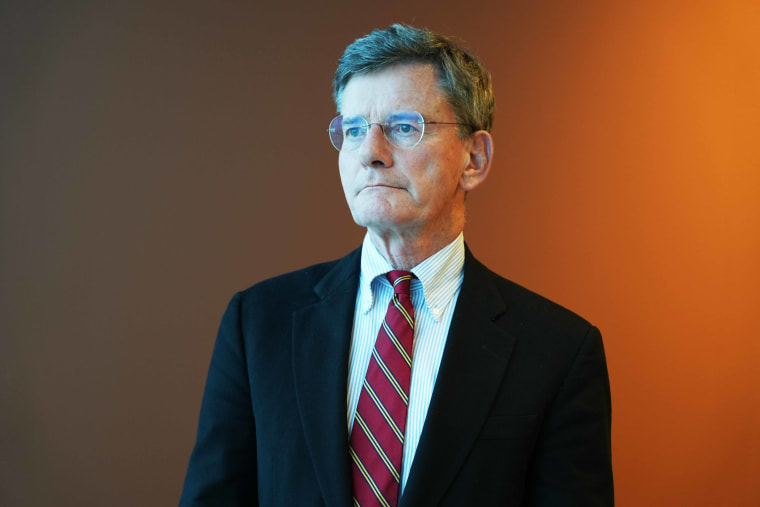
For those who welcome government efforts to share more decision-making with Māori and see it as upholding Māori rights under the treaty, new leadership after the October election risks a step back.
Asked about accusations that sharing more power with Māori was undemocratic, Waikato-Tainui leader Morgan said New Zealand was founded on the treaty, and that democracy by the terms of opponents to co-governance was a “tyranny of the majority.”
He pointed back to the treaty’s signing in 1840 where historical accounts suggest that the Māori population in New Zealand was somewhere between 70,000 and 90,000, while the European, or Pākehā, population was closer to 2,000.
“We were by far the majority,” he said. “But we still shared power.”
For others, even under the current government there is still a long way to go for Māori rights to be fully recognized in New Zealand.
Millan Ruka, founder of Environment River Patrol Aotearoa, is fighting for the recognition of his tribe’s ownership of the Poroti Springs on the country’s North Island. “We consider we own the water, we never ceded our resources in the 1840 treaty,” he said. “But we can concede totally that we share it.”
But for Susan and Lee Short, co-founders of Democracy Action, there is concern that the direction of travel on shared decision-making under recent governments is eroding the accountability of some organizations and undermining democracy. Their organization was established to champion “democracy and equality of citizenship in New Zealand”.
Co-governance needs to be clearly defined and there should be a referendum because “the public have never been asked” what they think about it, said Susan. Lee said that they understood the need for settlements where the treaty has been breached and support preserving Māori culture but that government moves toward sharing more power have divided what was once a very cohesive society.
In recent years he said, there had “been massive division in New Zealand between Māori and others.”
Lee said he believes that if Labour is triumphant in October’s election and governs with the Māori party, a possible kingmaker, lots of people will leave for neighboring Australia.
“This race issue is one of things that will drive them out,” he added.
